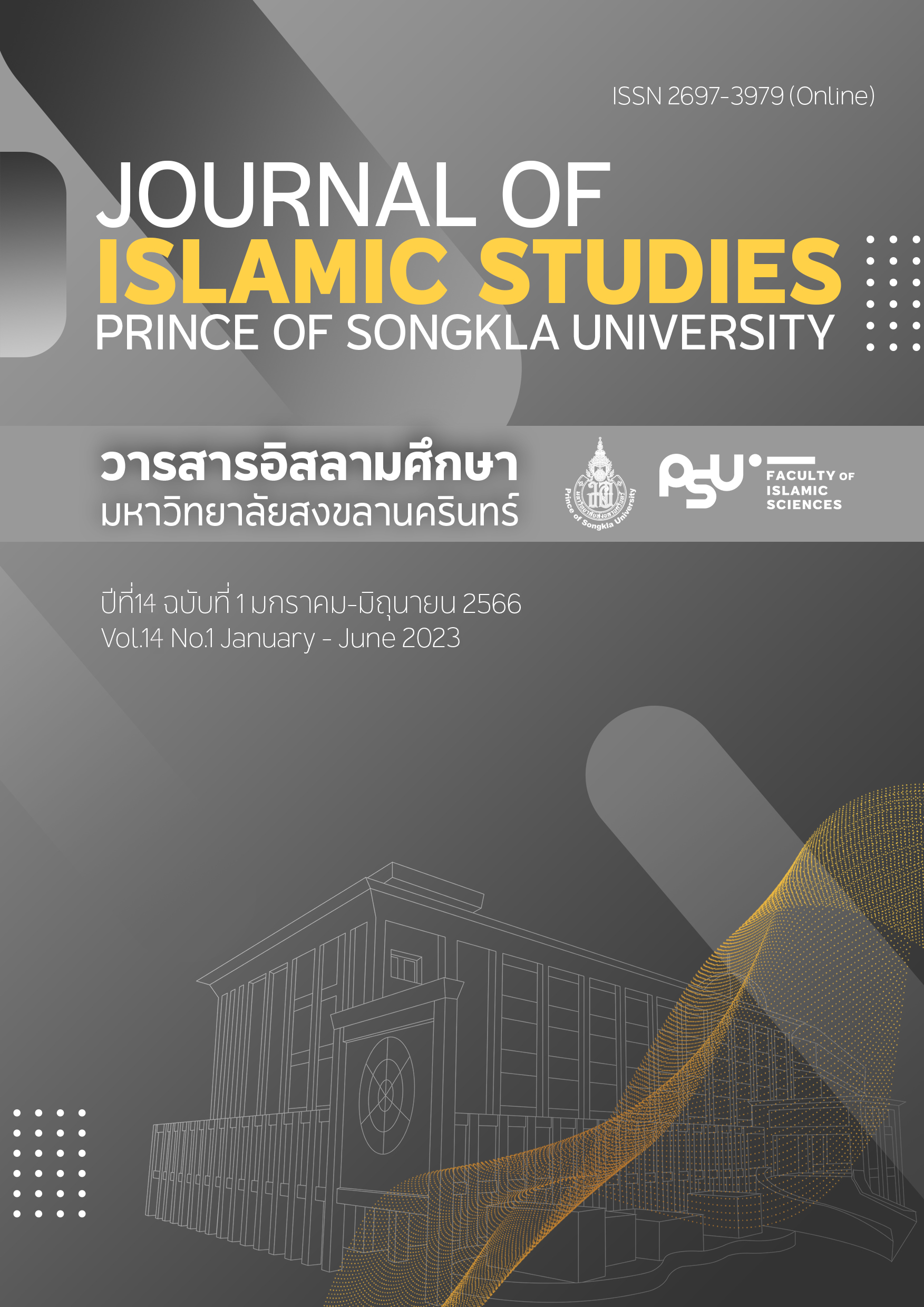Behavioral Economics of Al-Iman (Faith)
Keywords:
Behavioral Economics, Islam, Iman, FaithAbstract
Objectives: To examine human behavior by applying and integrating the knowledge of behavioral economics and Islam. In particular, the bad behavior of human beings causes weak faith (al-Iman). This study aims to prevent such behavior leads to being a perfect human under Islamic doctrine.
Methodology: To achieve the objectives of the study, this academic article employs a documentary research method by synthesizing and analyzing data from documents, books, textbooks, research articles, and related academic works.
Research Findings: The study found that applying behavioral economic knowledge helps people realize their own behavior to avoid bad behavior and enhance good behavior by improving and increasing their faith (al-Iman). As a result, it will bring real happiness and well-being in both this world and hereafter.
Contribution: This academic article can be applied to improve individual and social behaviors especially in developing and increasing faith (al-Iman) to become closer to Allah.
References
Abdulaziz, S. (1995). Manhaj Al-Imam Malik fi Ithbat al-Aqidah. Maktab Ibn Taimiyat.
Ariely, D. (2011). Predictably Irrational. HarperCollins Publishers.
Ariely, D. (2011). The Upside of Irrationality: The Unexpected Benefits of Defying Logic. HarperCollins Publishers.
Densumite, S. (2020). The Economics of Beauty: Weight Loss & Health Care from a Behavioral Economics Perspective. Economics and Public Policy Journal, 11 (22), 52-63. https://so01.tci-thaijo.org/index.php/econswu/article/view/235962
Miller, J. E., Amit, E., & Posten, A. (2015). Behavioral Economics. Encyclopedia of Global Bioethics, 1-6. http://dx.doi.org/10.1007/978-3-319-05544-2_37-1
Sijabat, R. (2018). Understanding Behavioral Economics: A Narrative Perspective. Asian Development Policy Review, 6(2), 77-87.
Sriamphai, R. (2010). Faith in Islam. Office of the Royal Society. http://legacy.orst.go.th/?knowledges=ศรัทธาในอิสลาม-๒๙-มิถุนา&fbclid=IwAR2QxQhCwiCIThfKZnmbS0PcEkWk27AVY2YUPjl6X9E9SCP8zP1n2F3q2-Y
The Hadith, (Sahih al-Bukhari, 5534). Sunnah.com. https://sunnah.com/bukhari:5534
The Hadith, (Sunan an-Nasa'I, 5682). Sunnah.com. https://sunnah.com/nasai:5682
The Hadith, (Sahih Muslim, 78). Sunnah.com. https://sunnah.com/muslim:78
The Hadith, (Sahih Muslim, 2628). Sunnah.com. https://sunnah.com/muslim:2628
The Hadith, (Sahih Muslim, 2956). Sunnah.com. https://sunnah.com/muslim:2956
The Noble Quran (Society of Institutes and Universities, Trans.). (2023). Quran.com. https://quran.com.
Treewanchai, S. (2016). Behavioral Economics & Urban Policy. Future Urban Development Rangsit University.
Wangmanee, K. (2011). The Development of Happiness in Thai Adolescents by Self-Help Program [Master’s Thesis]. Srinakharinwirot Univeristy. https://ir.swu.ac.th/jspui/handle/ 123456789/1151
Yungkit, F, & Kareena A. (2008). The Imparting Faith into Children of Thai Muslim Families in Kohlanta District, Krabi Province [Master’s Thesis]. https://kb.psu.ac.th/psukb/handle/2010/6202
Downloads
Published
How to Cite
Issue
Section
License
Copyright (c) 2023 © The Author(s). Published by the Journal of Islamic Studies, Prince of Songkla University under the Creative Commons Attribution 4.0 International License.

This work is licensed under a Creative Commons Attribution 4.0 International License.
All articles Published in The Journal of Islamic Studies are author’s opinions, and not the responsibility of the Faculty of Islamic Sciences nor the editorial board. However any citation should be referred to the journal.
















